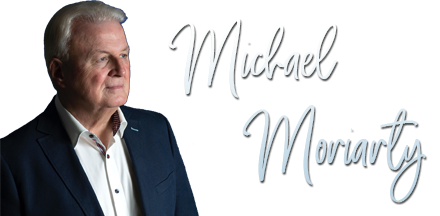Succession planning and leadership development should be a vital goal for every organisation concerned with long-term planning. Many good organisations today work with their employees on career development but the best of them are those which also have leadership development objectives embedded in their policies and procedures. They prioritise the development of the leadership potential of those employees who have shown an aptitude and capacity to take initiatives and to add value to their work. They support the cultivation of leadership potential internally through training and mentoring programmes because it is in the long-term interest of the organisation to promote a cohort of new leaders who readily understand and identify with the culture and values of the organisation they serve.
Highly skilled ambitious employees can often stand out as masters of their particular areas of responsibility . They may have ambition to advance to a particular management role requiring mastery of a wider range of skills than those they currently possess. Leadership requires well-developed strategic skills as well as operational insights and know-how. Sometimes, organisations make the mistake of promoting individuals to leadership or senior management roles simply because they have excelled in functional non-management roles. They subsequently struggle or even fail to survive in leadership or senior management because they lack those additional skills that are needed to communicate with, inspire and lead teams or individuals.
In order to avoid these pitfalls and to promote future organisational growth many organisations have prioritised the development of internal mentoring and training programmes for those employees who have displayed leadership and management potential. By cultivating leadership skills today, organisations are ensuring a sustainable flow of informed and capable leaders for the future who are culturally in-tune with the needs of the organisation they serve.
Aptitude tests may identify those individuals who have the innate skills to be successful managers and leaders but these need to be nurtured, exploited and developed so that there is a smooth transition to roles which require courage and conviction, vision and values, communication capabilities and the ability to influence others to trust and follow their leader. Inspiration, influence and impact are the very essence of good leadership, if capably communicated. It matters therefore that the current leadership in organisations have the vision to invest in talent development and sustainable future leadership. True leaders don’t create followers, they create more leaders- Tom Peters.
Immersive leadership training is now an increasingly popular method for developing leadership potential. This involves role play and simulation where participants are required to respond in real time as they act out their roles in leadership scenarios. Participants learn how to respond to set challenges, how to think and not just what to think. Such participatory courses enhance the leadership presence of participants while their real-time performance can be assessed, reviewed and thereafter improved.
An organisation’s commitment to the development of sustainable leadership must lie at the heart of that organisation’s culture. There is an organisational link between culture, change and performance. Culture influences and shapes organisational performance but also guides direction. Culture is about values and beliefs and a commitment to mentoring and training , including future leadership development. Culture also includes the attitude and performance of leadership and employees in the work environment. Belonging to a team or knowing that your opinions are valued should be part of this culture. So also should be career development and leadership training . Morale and opportunities for career development are as important as performance and outcomes.
An organisation’s management team should know the value of leadership succession. They will look internally for individuals who show initiative, identify opportunities, add value and demonstrate good decision-making skills. These should be supported and encouraged to look beyond their current operational silos. Facilitating experiential movement across functional silos, by allowing for temporary transfers to other roles, is a useful means to enhance the generic skills of potential future leaders.

( Photo; Linkedin Sales Navigator on Unsplash)
By working in teams potential leaders can learn to collaborate in problem-solving scenarios where peer to peer responsibility is to the fore. Exposing them to multi-functional challenges will broaden their skills base while also promoting collaborative learning and knowledge sharing. Initiative and creativity are inherent attributes of good leadership so they should be encouraged. Mistakes should be tolerated where risks are medium to low. Empowering potential leaders to make decisions appropriate to their position should be encouraged because if they are so empowered they will feel more trusted and valued.
By fostering the internal growth of young leadership, an organisation will enhance its overall strength and resilience. It is often said that a good sports team is the one which has strength on the bench. The substitutes are as strong as the players on the field and are interchangeable without weakening the overall strength of the team. Organisations have learned also that there are benefits in giving short-term management experience to select employees in particular management or leadership roles in order to enhance and sharpen their leadership capabilities. Such experimentation can be part of the organisation’s talent assessment process and is a useful way to assess strengths and weaknesses.
Organisations which are committed to cultivating their own internal stream of future leaders need to be aware of the evolving challenges facing leaders of today and tomorrow in a rapidly changing world. As the challenges evolve leaders need to show flexibility, agility and a commitment to face constant change with confidence. Leaders of tomorrow must be change agents who are innovative, creative and adaptive. They must be strategic thinkers with vision and foresight. They must have the confidence of their followers and the trust of their customers and clients. These are the attributes that need to be fostered in those aspiring leaders that organisations are cultivating.
Continuous learning and the development of generic leadership skills in aspiring future leaders is important also to meet the challenges of a fast-paced world full of disruptive technologies. According to an IBM report, human knowledge doubles every twelve hours . Knowledge and skills now have a much shorter shelf life than heretofore and commitment to continuous learning must be sustained because of the faster pace of changing knowledge. Future leaders may need a different arsenal of leadership skills than current leaders, so mentoring and training programmes must constantly evolve to meet the challenges of an ever-changing world.
Many organisations and companies have increased spending on leadership development initiatives. Professional development has become an important component of both business and development strategies because a highly skilled leadership is now viewed as adding significantly to competitive advantage. Organisations always seek leaders who can inspire, engage and influence colleagues and clients. Strong leaders can enhance organisational performance, increase productivity and generate higher customer or client satisfaction.
In a world of constant disruption the workplace needs leaders who impact constant change in order to avoid stagnation. Organisations are prioritising those aspiring leaders who show;
- authenticity- because they act with transparency and honesty:
- adaptability-because they are open-minded and receptive to new ideas;
- flexibility-because they demonstrate an ability to change their attitude and perspective on the basis of presented evidence;
- empathy- because they can manage their own emotions and understand the emotions of others;
- humility- because they often credit others for goals achieved;
- fallibility- because to err is human.
Already millenials value good interpersonal skills and interactions. Future leaders must be confident communicators capable of communicating in a clear and relatable manner. The means of communication is constantly expanding in a highly interconnected world using a variety of platforms and communication tools. For any leader strong communication and interpersonal skills are valuable assets necessary to sustain followers and maintain customers and clients.
Today we live with constant technological innovation and we need leaders who can either create or manage digital disruption. Leaders of the future will still be the driving force for change. We need leaders who show alertness and a capacity for quick reactions to deal with the unpredictable. Organisations need to take risks: they need to be innovative and brave when moulding their future leaders. They need to adapt and show flexibility. They need to demonstrate those attributes they expect from their future leaders. They need to learn to change, to adapt to a world of constant change because leadership and learning are indispensable to each other– John F. Kennedy.
A Dell Technologies report points out that 85% of the jobs that today’s school-leavers will fill in 2030 haven’t yet been invented. More than ever the immediate future is not just full of uncertainty; it is full of complex and rapid change. This is the challenging future facing aspiring leaders where the best will not only lead change but thrive with the challenge of change. The challenge for those organisations presently cultivating future leaders is to equip them with the generic, transferable, flexible skills to provide the brave, trailblazing inspiring leadership our world needs. Anyone can hold the helm when the sea is calm– Publilius Syrus.
Good leadership capability has never been more valued than now. In an era of great uncertainty we need the best leaders we can grow, if we want the best possible future for ourselves and others. The future belongs to those who prepare for it today- Malcolm X.
(Feature photo by Jehyun Sung on Unsplash).
ABOUT THE AUTHOR
Michael Moriarty has over 30 years senior leadership experience in Ireland and Europe., leading a national and European organisation. He is the author of Every Leader’s Reality Guide. Michael has contributed widely to many national and international publications on leadership, education and training.

